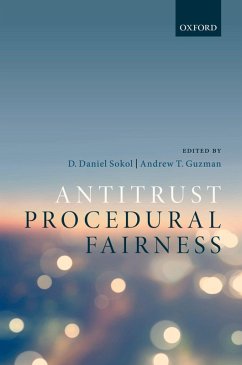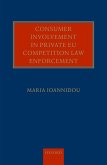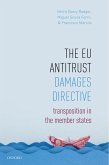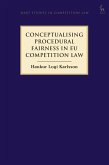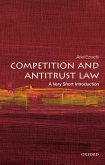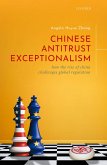Much of antitrust law scholarship has focused on substantive legal issues - theories of harm and changing law and policy. Surprisingly, there has been very little work that is comparative, on a fundamental element that is a critical building block to effective policy - procedural fairness. Procedural fairness encompasses issues of transparency and due process. Procedural fairness has been an important issue in global antitrust for some time. The types of due process concerns raised globally often relate to the lack of effective representation, the use of industrial policy by third parties, and procedural tools that do not allow for the most effective advocacy to lead to efficient outcomes. This book focuses on these issues and teases out common problems and distinct issues in particular jurisdictions, allowing for a rethink of creating a more effective system for procedural fairness, and explores these issues in each jurisdiction, along with highlights of particular cases in which due process issues have emerged.
Dieser Download kann aus rechtlichen Gründen nur mit Rechnungsadresse in A, B, BG, CY, CZ, D, DK, EW, E, FIN, F, GR, HR, H, IRL, I, LT, L, LR, M, NL, PL, P, R, S, SLO, SK ausgeliefert werden.

